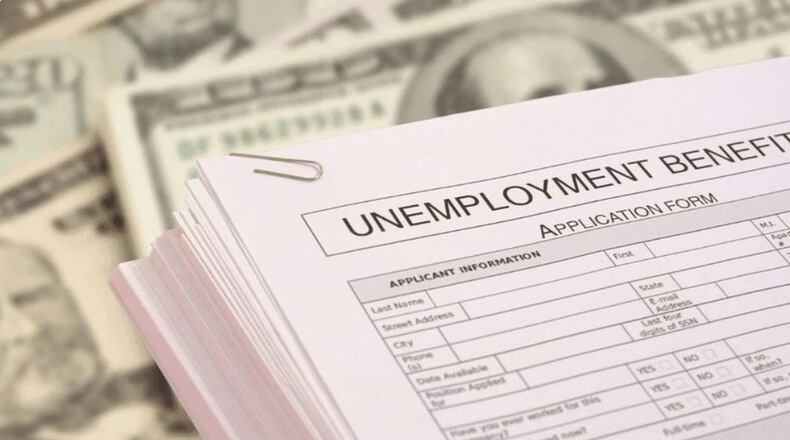Gov. Brian Kemp said Wednesday that he will commit up to $1.5 billion in federal pandemic relief money to shore up the fund that pays unemployment benefits.
Kemp’s aim is to continue paying benefits and keep the state from having to cut them, raise unemployment taxes or take years to repay federal loans to the fund. All that took place during the Great Recession, when Georgia had to borrow about $1 billion to be able to continue making payments to the jobless.
The governor’s announcement came half a year after the COVID-19 shutdown tossed millions of people out of work and sent Georgia’s unemployment rates skyrocketing. The jobs picture has improved, but hundreds of thousands of Georgians remain out of work and companies have continued to announce layoffs and furloughs as the economy struggles to regain its footing.
“COVID-19 has brought unprecedented challenges to nearly every business — large and small — and upended the lives of millions of Georgians,” Kemp said. “Today’s announcement will save Georgia employers millions of dollars in state and federal unemployment taxes, prevent significant layoffs and save the state millions of dollars in interest payments."
State officials estimate that committing the money to paying off loans to the unemployment fund will save the average Georgia employer about $350 a year per worker.
If all $1.5 billion is used, it will eat up the biggest chunk of the money the state had left over from the federal CARES Act. The state spent over $1 billion in the first few months of the pandemic, mostly on providing health care and acquiring medical equipment.
Kemp also announced an additional $400 million from the federal fund will go for grants, Georgia National Guard expenses, continued additional hospital staffing and other pandemic costs.
With benefit payments outpacing unemployment tax revenue paid by employers, the state has had to borrow money from the federal government to pay benefits.
After the Great Recession, it took until about 2014 for the state to repay such loans, brought on by a surge in benefits as hundreds of thousands of Georgians lost their jobs.
In 2012, the state Legislature increased employer taxes to add some revenue to the fund. It also cut the maximum period an unemployed person could receive benefits from 26 weeks to no more than 20 weeks.
Problems during the Great Recession were set up by a 1999 decision by the state to suspend business payroll taxes and later moves to suppress “triggers” meant to rebuild the fund by raising business taxes.
Government officials defended the action as being justified by a healthy job market and the desire to improve the business climate.
But it made the unemployment fund vulnerable to a deep and prolonged crisis, as seen during the Great Recession and also the COVID-19 pandemic, which hammered the economy initially and has offered a slow recovery with lots of long-term unemployment.
Paying off current and future loans during the pandemic will allow the state to both continue paying benefits and keep businesses' taxes down, officials said.
“Without the transfer of funds, the state will have to increase unemployment tax rates for employers between 300% and 400% to make headway paying off the loan,” said Labor Commissioner Mark Butler, who was in office in the early 2010s when the state was trying to pay back its Great Recession loans.
“This reallocation of federal funds will allow more employers across the state to focus on the growth and success of their business without having the additional pressure of a rising unemployment tax,” Butler said.
Nathan Humphrey, state director of the National Federation of Independent Business, applauded Kemp’s move.
“2020 has been a challenging year for Georgia’s small-business owners and employees,” he said. "Today’s announcement means people who lost their jobs through no fault of their own because of the pandemic will have the support they need until they can return to work, and it relieves the financial pressure on the General Assembly to raise taxes on small businesses in order to support the Georgia Unemployment Trust Fund.”
About the Author
Keep Reading
The Latest
Featured




